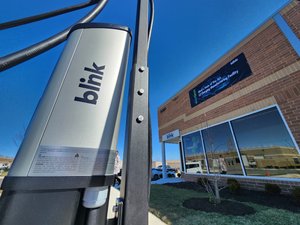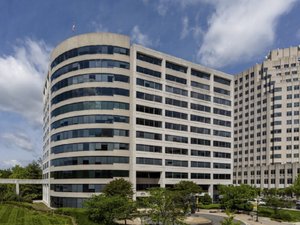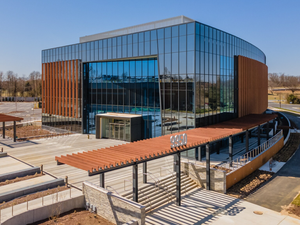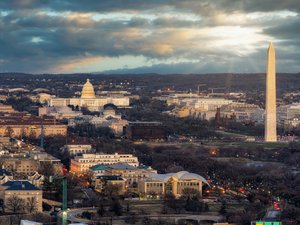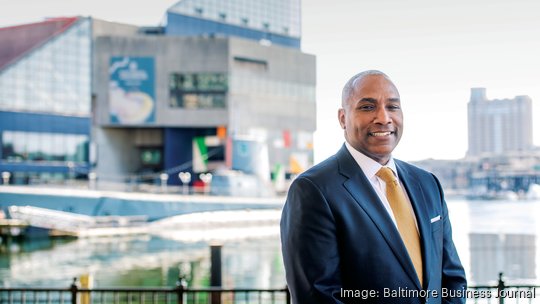
Maryland has scored several economic development victories in recent months tied to investments made by Gov. Wes Moore’s administration and it's readying to make even more such wagers after committing another $11 million this month to two grant programs aimed at spurring innovation and job creation.
Under Moore, a Democrat, the state has invested millions of dollars in such high-growth industries as advanced manufacturing, biotech, cybersecurity and quantum computing, all with an eye toward reversing years of economic stagnation in one of the nation's wealthiest states.
Secretary of Commerce Kevin Anderson said in an interview this week that Moore is planning to make "a couple of big bets" in those industries in the coming months as part of a pledge to bring more private-sector jobs to the state and make Maryland less reliant on the federal government for job growth.
"There are some real big opportunities that he's discussed about our planning and where we want to take the economy," Anderson told me. "The thought is to make it more equitable, more robust and more competitive."
Maryland has lagged the rest of the nation in job creation in recent years. According to data from the U.S. Bureau of Labor and Statistics, the state ranked 49th in the country in job growth over the past year and has actually lost about 128,000 jobs, or 4% of its adult workforce, since January 2020. In neighboring Virginia, meanwhile, employers have added a net 131,500 workers to payrolls in that same timeframe, an increase of 3%.
Virginia is widely seen as being more friendly to business than its neighbor to the east. In July, CNBC crowned Virginia the top state for business, based on 10 economic metrics, including workforce, infrastructure and cost of doing business. Maryland came in at No. 31.
Still, in one key metric — technology and innovation — Maryland placed in the top 10 in CNBC's ranking, and that's where it is placing its biggest bets. Under Moore, the state has pledged six- or seven-figure loans to grants to more than a dozen companies in the past few months to help them expand operations in the state. They include:
- Ion Storage Systems, a Beltsville battery manufacturer that received a $1 million grant to help with the buildout of its new 30,000-square-foot manufacturing facility next to its headquarters. The company has about 70 employees and is looking to double that figure in the next few years.
- Blink Charging Co. (NASDAQ: BLNK), an electric vehicle charging device maker, was awarded a $1.6 million grant to help fund the construction of a 30,000-square-foot manufacturing facility in Bowie and, more notably, facilitate the relocation of its corporate headquarters from Miami to Maryland. The company expects to double its Maryland workforce, to around 100 employees, by early 2025.
- BlueHalo LLC, a Northern Virginia defense technology company, which is set to receive a $1 million conditional loan and $50,000 grant to establish a 57,000-square-foot research-and-development facility in Montgomery County, where it's expected to employ 260 workers. Montgomery County is also offering a $100,000 conditional grant to back the expansion.
- British pharmaceutical giant AstraZeneca PLC is set to receive a $500,000 conditional loan from the state to back a $300 million buildout of a new of manufacturing hub in Montgomery County. The company expects to create more than 150 new jobs at the site upon its completion in 2026.
Anderson said a key in attracting and retaining employers is playing to the state's strengths: its highly educated workforce, top-tier research institutions and the fact that it is home to agencies like the National Institutes of Health and the U.S. Food and Drug Administration.
"We just have a great deal of assets. It's largely about clicking them and making them work," Anderson said.
Still, incentives can only be a part of the economic development puzzle, and they alone are unlikely to boost economic growth in the state meaningfully, said Montgomery County Executive Marc Elrich.
During a roundtable discussion with the Washington Business Journal earlier this month, Elrich said development in the state, and Montgomery County in particular, is often held back by unwieldy approval planning processes. He argued, too, that Virginia's economic growth has outpaced Maryland's because the state allows local governments to establish special taxing districts that allow them to tax businesses and use the proceeds to fund large-scale infrastructure projects. Maryland counties have no such authority and, therefore, do not have the revenue streams to make the necessary investments, Elrich said.
"You can see in Northern Virginia what they've built — it transformed Tysons Corner — with that money," he told us. "I keep pointing out to my colleagues…you got all this talent and people are going to Virginia, they're not going there to save money on taxes. They are going there because Virginia invested in infrastructure."

